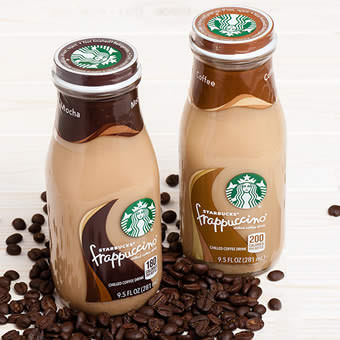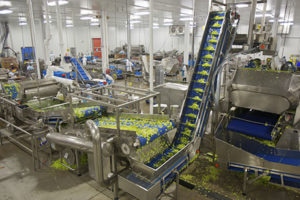Introduction
In today's swiftly advancing food industry, services are seeking sustainable remedies to fulfill the growing need for quality food products while decreasing their environmental impact. Contract food manufacturing has emerged as a feasible choice for companies seeking to outsource their production requires while maintaining control over product growth and also quality assurance. This post checks out the principle of contract food manufacturing in Australia and its function in advertising sustainability within the food industry.


The Increase of Contract Food Manufacturing in Australia
Understanding Agreement Food Manufacturing
Contract food manufacturing is a strategic collaboration between a brand owner and a contract supplier, where the last creates items on behalf of the former. This plan allows brand name proprietors to concentrate on advertising, product development, and distribution while leveraging the competence as well as resources of specialized agreement manufacturers.
Benefits of Agreement Food Manufacturing
Cost Efficiency: Contract food manufacturing gets rid of the demand for substantial capital investments in framework, equipment, and workforce. This cost-saving action enables brand names to allocate their sources towards other vital areas of organization growth. Scalability: As demand for a particular item fluctuates, agreement manufacturers can rapidly change manufacturing levels to suit market requirements. This adaptability guarantees that brand names can meet consumer need without excess inventory or wastage. Expertise as well as Technology: Agreement producers often possess extensive expertise and also experience in specific food groups or procedures. By collaborating with these specialists, brand names can use their creativity as well as harness cutting-edge remedies for item growth and improvement. Quality Assurance: With rigid quality control procedures in place, agreement manufacturers adhere to market standards and regulatory requirements. This commitment to quality guarantees that brand names supply safe and also high-grade items to customers consistently. Supply Chain Monitoring: Contract food manufacturing simplifies the supply chain by combining manufacturing, product packaging, labeling, and circulation under one roof covering. This incorporated technique decreases logistical intricacies and enhances total operational efficiency.The Environmental Impact of Contract Food Manufacturing
Reducing Carbon Footprint
Contract food production uses possibilities to decrease the environmental influence of food manufacturing via various methods:
Efficient Resource Use: Agreement producers enhance resource intake by carrying out energy-saving techniques, reducing water usage, and lowering waste generation. These lasting steps contribute to a lower carbon impact throughout the whole manufacturing process. Locally Sourced Ingredients: By sourcing components from local distributors, agreement producers minimize transportation distances and also associated discharges. This practice sustains local economic climates while promoting sustainability within the supply chain. Eco-Friendly Product packaging: Contract food suppliers emphasize using green packaging products, such as biodegradable or recyclable choices. This commitment to lasting packaging decreases waste as well as promotes liable consumption.Embracing Sustainable Energy
Contract food producing facilities in Australia are progressively taking on renewable energy sources to power their procedures. Photovoltaic panel, wind turbines, as well as various other clean energy solutions help reduce reliance on fossil fuels and contribute to a greener future for the industry.
Addressing Sustainability Challenges in Contract Food Manufacturing
Waste Management as well as Recycling Initiatives
Contract food suppliers prioritize waste monitoring via extensive recycling programs as well as waste reduction strategies. By carrying out reliable waste partition systems, firms can draw away significant amounts of waste from garbage dumps and advertise a circular economy.

Water Preservation Measures
Water scarcity is an international worry, as well as agreement food suppliers play their component in addressing this challenge. Business buy water-saving innovations, such as advanced filtering systems and water reuse efforts, to reduce their freshwater consumption.
Collaboration with Lasting Suppliers
Contract food brands food producers proactively look for partnerships with providers dedicated to sustainable techniques. By focusing on environmentally mindful suppliers, these companies make sure that their whole supply chain straightens with sustainability goals.
FAQs
What is contract food manufacturing? Contract food manufacturing refers to the outsourcing of food manufacturing to specialized producers that create goods on behalf of brand owners.
How can contract food manufacturing advantage services? Contract food manufacturing uses price efficiency, scalability, competence, as well as quality assurance to brand names seeking to focus on advertising as well as distribution.
How does contract food manufacturing promote sustainability? By optimizing source application, welcoming renewable resource, and executing waste management and recycling campaigns, contract food manufacturing decreases its ecological impact.
What are some sustainable packaging alternatives in contract food manufacturing? Environmentally friendly product packaging products such as eco-friendly or recyclable options are generally used in contract food manufacturing to lower waste.
How do contract food makers conserve water? Contract food makers invest in water-saving innovations and implement water reuse campaigns to minimize their freshwater consumption.
What role does collaboration with sustainable providers play in contract food manufacturing? By partnering with eco mindful providers, contract food producers make certain that their whole supply chain straightens with sustainability goals.
Conclusion
Contract food production offers a lasting solution for businesses looking for to fulfill the growing demand for high quality foodstuff while decreasing their ecological influence. By leveraging the competence of specialized makers and taking on environment-friendly techniques, brand names can add to a greener future for the Australian food market. Accepting sustainability not just benefits the setting yet also boosts brand online reputation as well as customer count on an increasingly mindful market.